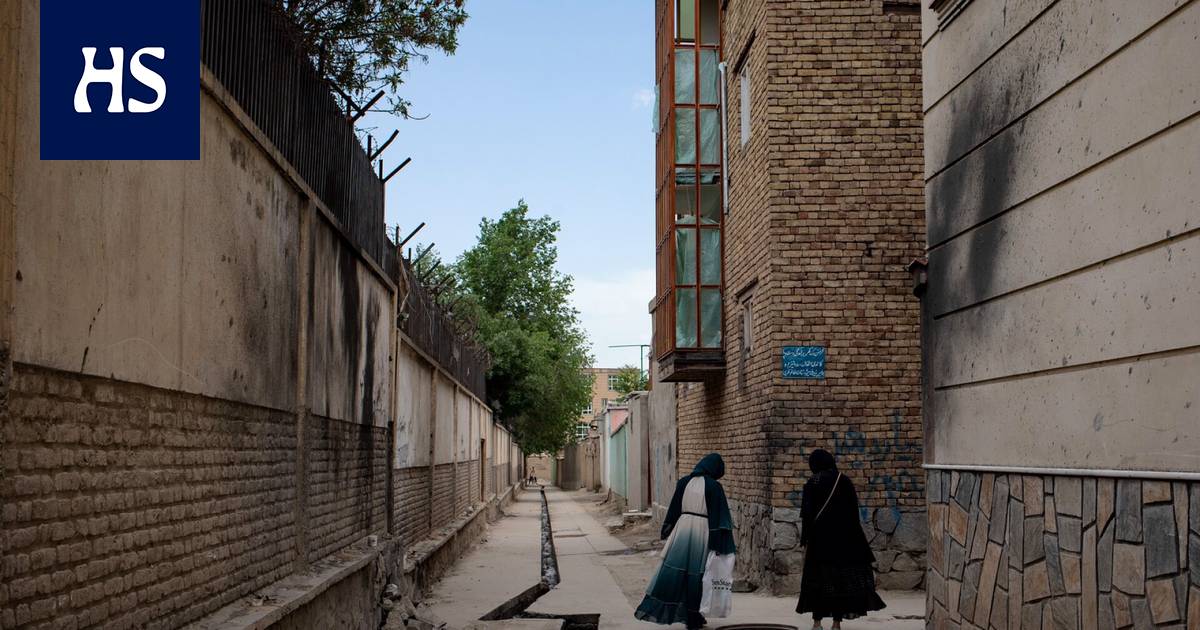Ramadan has ended in Kabul, the capital of Afghanistan.
During the Muslim holy month, several bombings were carried out in Kabul and the large northern cities of Mazar-i-Sharif and Kunduz, as well as in a few provincial centers. Hundreds of people died in them.
Some reliable sources estimate 370 people were killed in the bombings during Ramadan. The jihadist organization Isis has said it has carried out two terrorist attacks on mosques against Sunni and Sufimus limes. However, it is not clear who made the other attacks on the Shiite minority in Afghanistan.
April On the 19th, two bombs exploded in Abdulrahim Shahid’s junior high school immediately after the school closed. The school is located in the Hazch minority-populated Barch district of Kabul. Hazaras are a Persian-speaking minority, the majority of whom are Shia Muslims.
After the attack, eyewitness accounts spread as many as 60 people died in the attack. The Taliban-led interim government later announced that there were only six dead. The administration blocked a mass funeral the next day.
Kabul, with a population of 4.6 million, went dark after sunset in late April. The city has suffered power outages.
Two days after the attack at the blast site, in the narrow alley behind the school, everything looks neat. Head of school Gholam-Heydar Hosseini provides HS with information about the attack that is inconsistent with online eyewitness descriptions.
“There were only eight martyrs here, five schoolchildren and three passers-by,” he says.
Before the Taliban came to power, it was important to tell the Afghan government about the devastation of the terrorist attacks without covering anything up. At the time, the press was free to interview the victims and visit the venues freely.
Following the rise of the Taliban to power last August, the work of journalists in Afghanistan has been severely curtailed. They have been threatened and even physically attacked, if he have reported from the venues.
Taliban intelligence has put pressure on the victims’ families. Therefore, public figures on the number of victims under the Taliban are unreliable.
Before the Taliban came to power, the attacks on the Shiite population of Afghanistan were considered precisely the grim handprint of the Taliban. When a rebel group took over the country in August and international forces withdrew, the Taliban pledged to guarantee peace and security for all ethnic groups in Afghanistan.
Indeed, there was some hope that the violence would finally end and that Afghanistan’s economy would recover.
In the sun on a spring day, dozens of women have arrived in their blue jars in a queue for bread next to a bakery in Kabul. There are also a few men with their wheelbarrows. They are unemployed mixed workers looking for gig work.
Haroon31, sits in his wheelbarrow and complains that there is no demand for labor.
“I have three children. I get five to six donations of bread a day. We make them and green tea for dinner and breakfast. Last week I got two servings of rice and we shared them with the kids and my wife. ”
Baker Samim Samimi (middle) bakes bread in a bakery in Kabul. Due to the economic situation, the size of the bread has been reduced and the salaries of employees have been halved.
Baker Samim Samimi.
Samim Samimi27, has been working as a baker for 13 years.
“The number of beggars and queuers in front of the bakery has doubled in three months,” he notes.
Samimi deftly slips five flat doughs into a clay oven and continues:
“Two years ago, when there was a corona-related unemployment spike, there were a lot of beggars, but now there are more of them. On top of all that, the bakery owner halved my salary after the government collapsed. ”
Homeira, 23, carries a two-month-old baby in his arms. He previously taught the Quran at a homeschool for 70 students.
“Now there are only five students left, only three of whom can afford to pay a monthly fee of 50 Afghans,” he says. The amount corresponds to approximately EUR 0.55.
“Many traders and businessmen have left the country this year. So there are fewer payers. Due to corruption, we do not receive grants from abroad. ”
Norooz Ali (in a white hat) assisted bakery workers who distributed free bread to the poor.
Free bread will be distributed before the fasting iftar dinner at the Wazir Akbar Khan Mosque in Kabul.
Bakery next to Norooz Ali, A 62-year-old hazara, runs a small shop selling plastic products. He helps bakers distribute breads to the crowd.
He agrees with international aid and notes that corruption exists in Afghanistan “at many levels”.
“In the Hazaro region, for example, it is less common to see aid distributed by international organizations. But the great timeless customs of the Shiites [uskonnollisten johtajien] help works there too. ”
Disagreements between ethnic and religious groups are deep in the history of Afghanistan and affect many things. As underlined, Norooz Ali states that “the security of Tajiks, Uzbeks and postmen may have improved”.
“But for the Hazaras, life in Afghanistan is as poor as it was in republican times,” he says, referring to the time before the Taliban came to power.
One or two a day later, on the last night of Ramadan, last Saturday, the security director of Kabul Mawlawi Ibrahim is holding a press conference.
Kabul security chief Mawlawi Ibrahim held a briefing in the yard of the government media center because the electricity was cut off due to the bombing.
The security chief blames his speaking power on “enemies” who are trying to create an atmosphere of fear in Afghanistan. He assures that the Taliban-led Islamic Emirate will find the culprits and that they will face Sharia law in all its severity.
It is illustrative that the press conference will be held in the sky. This is because the electricity is cut off in Kabul as the previous night, two major imported electricity lines were destroyed in the shocks.
In his speech, Mawlawi promises security for all citizens. With that said, he is aware that a bomb attack on a bus that killed four people has been carried out just five miles away that afternoon.
When The Taliban rose to power, and their slogan was, “How beautiful is the spring of freedom.” The slogan was used to make murals for city streets.
In the first real spring since the rise of the Taliban, Afghanistan is suffering from a deep recession due to, among other things, frozen bank accounts abroad. This has been followed by unemployment and rapidly deepening extreme poverty.
And as clashes between ethnic groups and terrorist attacks continue, all indications are that spring will continue to be very volatile.
#Afghanistan #Kabuls #spring #freedom #uneasy #Taliban #takeover #stopped #bombings









